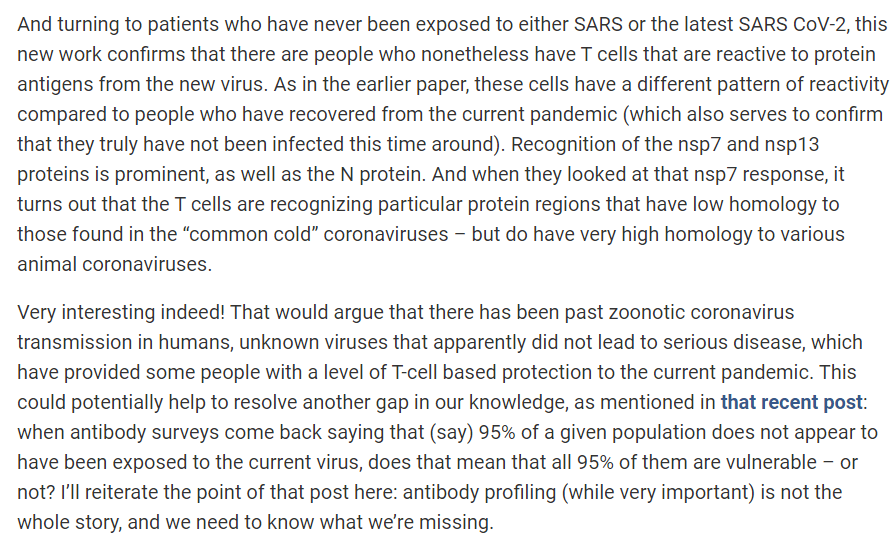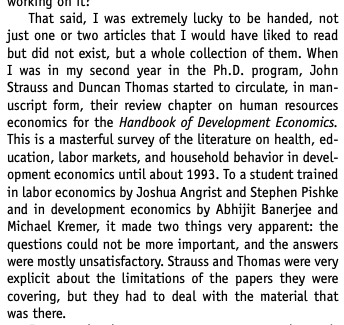Excellent summary by @Dereklowe in @ScienceMagazine with some positive news about immunity to #COVID19 - from what I can tell, two things to note: 1/n
https://twitter.com/ryanluce72/status/1284210157707132929
1: antibodies may fade quickly (within ~few months to a few years), but T-cells might stick around way longer and still provide some meaningful protection. 2/n 

2: there may be some cross-reactive (t-cell?) protection from related coronaviruses, possibly the common cold 3/n 

Obviously still a lot to learn, but glimmers of hope are worth celebrating! 4/fin
• • •
Missing some Tweet in this thread? You can try to
force a refresh












